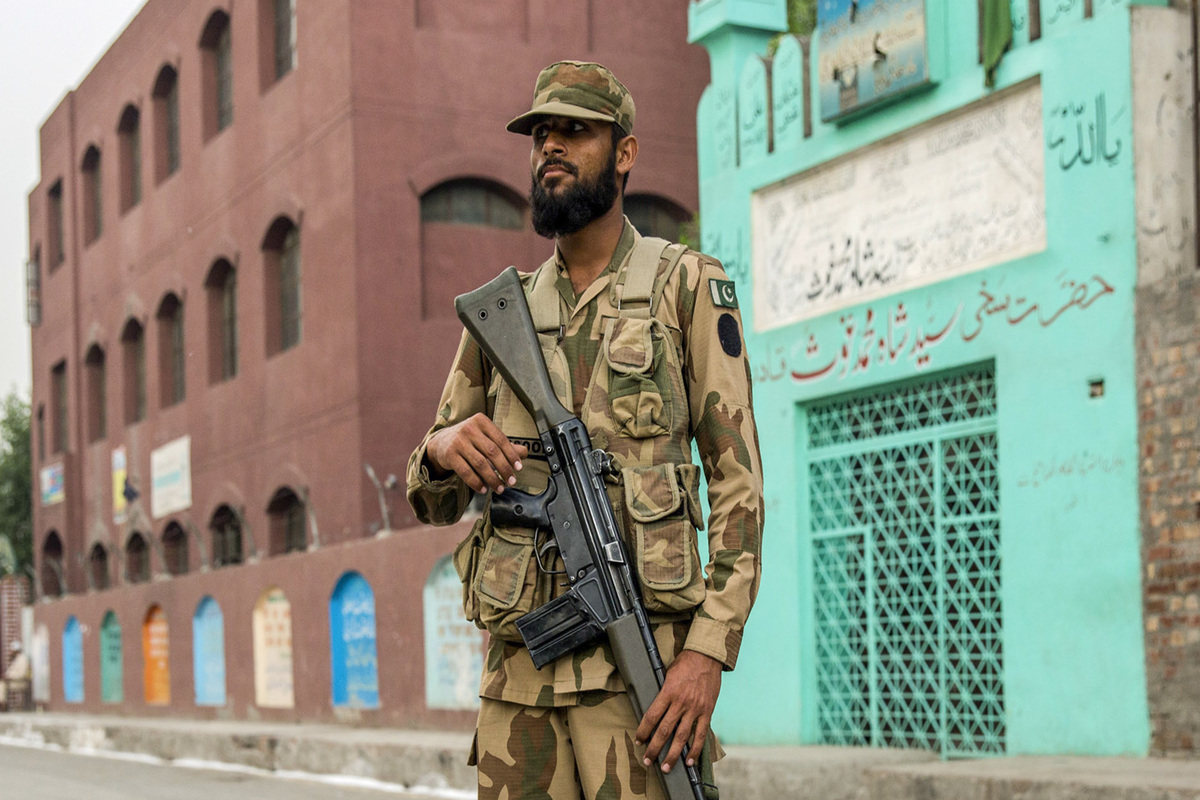LG calls effective for steps to wipe out terrorism from Jammu
Lt. Governor Manoj Sinha, on Thursday, stressed strengthening border security against asymmetric threats due to the porous border with riverine and difficult mountain ranges.
The decision to try those responsible for the attacks on Army installations in Pakistan on May 9 under the Army Act will deepen the fissures in an already fractured polity.

Pak Army Representation image (file photo)
The decision to try those responsible for the attacks on Army installations in Pakistan on May 9 under the Army Act will deepen the fissures in an already fractured polity. This decision was taken at a meeting of the Army’s corps commanders, and not by the civilian government, and has already been criticized by independent commentators as evidence of the Army’s lengthening shadow over the affairs of state.
A largely ineffectual civilian government has gone along with the Army’s decision, in part because it has no solutions to the increasing influence of former Prime Minister Imran Khan on the citizenry, and also because it has been frustrated time and again by the country’s courts in its attempts to rein in his Pakistan Tehreek-eInsaaf party.
Advertisement
Several thousand people are believed to have been taken into custody following the unprecedented attacks on Army establishments, and many of them are likely to face charges of terrorism for having dared to vent their ire on the men in uniform. The Army’s response is not unexpected, and not just because of the longstanding animosity between Mr. Khan and the Army chief, General Asim Munir, who has termed the attacks “planned and orchestrated”. The attacks, in a sense, challenged a basic premise of the post-Jinnah Pakistani state which is that the Army is the most important institution in the country.
Advertisement
To have the hoi polloi trample through the homes of senior officers and purloin even a pet peacock was galling for those in uniform; it presented an image of an institution that claims pre-eminence by virtue of being the defender of the nation being seen as unable to defend itself. It was not just the larders of senior officers that were looted; it was their sense of self-esteem. This was bound to have a price, and the Army now seems determined to exact it, with the siege of Mr. Khan’s home in Lahore, to arrest “terrorists” who had taken refuge there being another chapter in this saga. In effect, this has now become a fight to the finish between Mr. Khan and the supporters who have rallied behind him, and the Army. A largely ineffective civilian government has been reduced to being the Army’s cheerleader.
This battle will draw blood before it ends. This is because the stakes are higher than Pakistan has known for a long time. If Mr. Khan succeeds in wresting power in the next election, as well he might if they are held, he will want to believe he reigns supreme over all the country’s institutions including the Army. This is an outcome that cannot please the Army, used as it is to being the overarching power centre. Therefore, it will do everything in its power, which is considerable, to ensure that Mr. Khan does not come to power, unless he agrees to fall in line. In either event, and unless one of the sides backs down, the confrontation will be bloody.
Advertisement